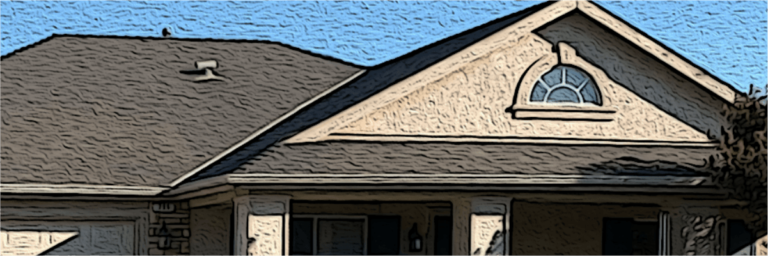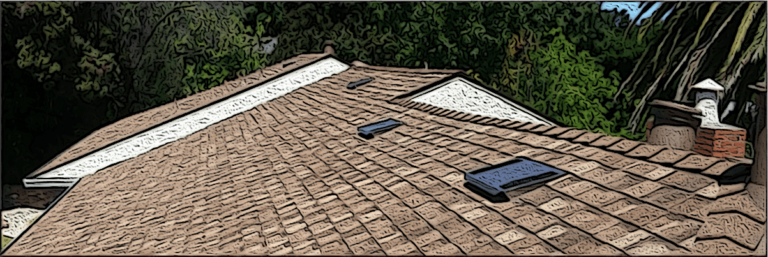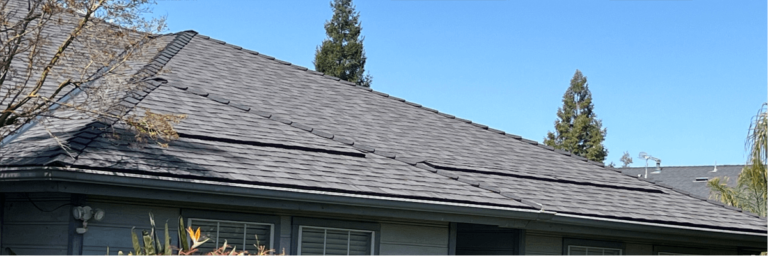
A lifetime roof composition shingle warranty is a type of warranty offered by manufacturers of roofing shingles to provide coverage and assurance to homeowners. It typically guarantees that the shingles will remain free from manufacturing defects and will perform as intended for the lifetime of the product.
Here are some key points to understand about a lifetime roof composition shingle warranty:
- Coverage Period: The “lifetime” in the warranty refers to the expected lifespan of the shingle product, which is usually defined by the manufacturer. This period can vary between different manufacturers but typically ranges from 30 to 50 years.
- Manufacturing Defects: The warranty ensures that the shingles are free from defects in materials or workmanship. This means that if the shingles fail due to faults in their manufacturing, the manufacturer will provide remedies as outlined in the warranty.
- Performance Guarantee: The warranty also guarantees that the shingles will perform as intended, protecting your home from extreme weather and maintaining their aesthetic appearance over time. This means that if the shingles prematurely deteriorate, crack, or lose granules, the manufacturer may provide compensation or replacement shingles.
- Prorated or Non-Prorated: Lifetime warranties can be either prorated or non-prorated. A prorated warranty means that the coverage decreases over time, typically based on the age of the roof. In contrast, a non-prorated warranty provides full coverage for the entire duration specified in the warranty.
- Transferability: Some lifetime warranties are transferable to subsequent homeowners if you decide to sell your home. This can be an attractive feature, as it adds value to your property and gives the new homeowner the assurance of a warranty.
- Warranty Exclusions: It’s important to carefully review the terms and conditions of the warranty to understand any exclusions or limitations. Common exclusions may include damage caused by extreme weather events, improper installation, or lack of proper maintenance.
- Installation Requirements: Most warranties require that the shingles are installed according to the manufacturer’s guidelines and by a certified roofing contractor. Failing to meet these requirements may void the warranty, so it’s crucial to follow the instructions and hire qualified professionals.
Wind warranty:
A wind warranty on a composition shingle refers to the coverage provided by the manufacturer against wind damage. It guarantees that the shingles will withstand specific wind speeds without sustaining damage or becoming dislodged. Wind warranties are particularly important in areas prone to strong winds or severe weather conditions.
Here are some key points to understand about wind warranties on composition shingles:
- Wind Speed Rating: Wind warranties specify the maximum wind speed that the shingles are designed to withstand without damage. This wind speed rating is typically expressed in miles per hour (mph) or in a designated wind resistance class, such as Class D, Class G, or Class H. The specific wind speed rating can vary between different manufacturers and their shingle products.
- Warranty Duration: Wind warranties usually have a specified duration, which can vary depending on the manufacturer and the shingle product. Common wind warranty durations range from 60 to 130 mph, with some manufacturers offering enhanced warranties for higher wind speeds.
- Installation Requirements: To qualify for wind warranty coverage, the shingles must be installed according to the manufacturer’s guidelines and industry best practices. Proper installation techniques, such as the use of the recommended number of fasteners and appropriate sealing methods, are essential to ensure the shingles’ wind resistance. Failing to meet the installation requirements may void the wind warranty.
- Limited Warranty: Wind warranties are typically offered as part of a larger limited warranty that covers various aspects of the shingle’s performance and durability. The wind warranty may be included alongside coverage for manufacturing defects, granule loss, algae resistance, or other specific issues.
- Exclusions and Limitations: Wind warranties may have certain exclusions or limitations that homeowners should be aware of. Common exclusions may include damage caused by extreme weather events, improper installation or repairs, inadequate roof deck preparation, or lack of regular maintenance. It’s important to carefully review the terms and conditions of the warranty to understand any restrictions.
It’s worth noting that wind warranties are typically separate from the general product warranty or the lifetime warranty on composition shingles. While the wind warranty focuses specifically on wind resistance, the overall warranty coverage may encompass other factors such as manufacturing defects, material defects, and the expected lifespan of the shingle.
When considering composition shingles and their wind warranties, it’s advisable to consult with the manufacturer or a roofing professional to understand the specific details and requirements of the warranty. They can provide guidance on the appropriate shingle product for your location and advise on proper installation practices to maximize wind resistance and warranty coverage.
Registration: Manufacturers may require homeowners to register their warranty within a certain period after the installation of the shingles. Failure to register may result in a loss of warranty coverage, so it’s essential to complete this step if required.
Remember, warranties can vary between different manufacturers, so it’s crucial to read and understand the specific terms and conditions of the lifetime roof composition shingle warranty provided by the manufacturer you are considering. If you have any questions or concerns, it’s advisable to contact the manufacturer or consult with a roofing professional for clarification.
Which roofing professional you choose can also determine warranty coverage. Is your installer factory certified? This could mean greater warranty coverage for your home.
We hope this information was helpful in understanding your roof warranty. Ask for a written manufacturer’s warranty to help further understand the details of your roofing manufacturer.



